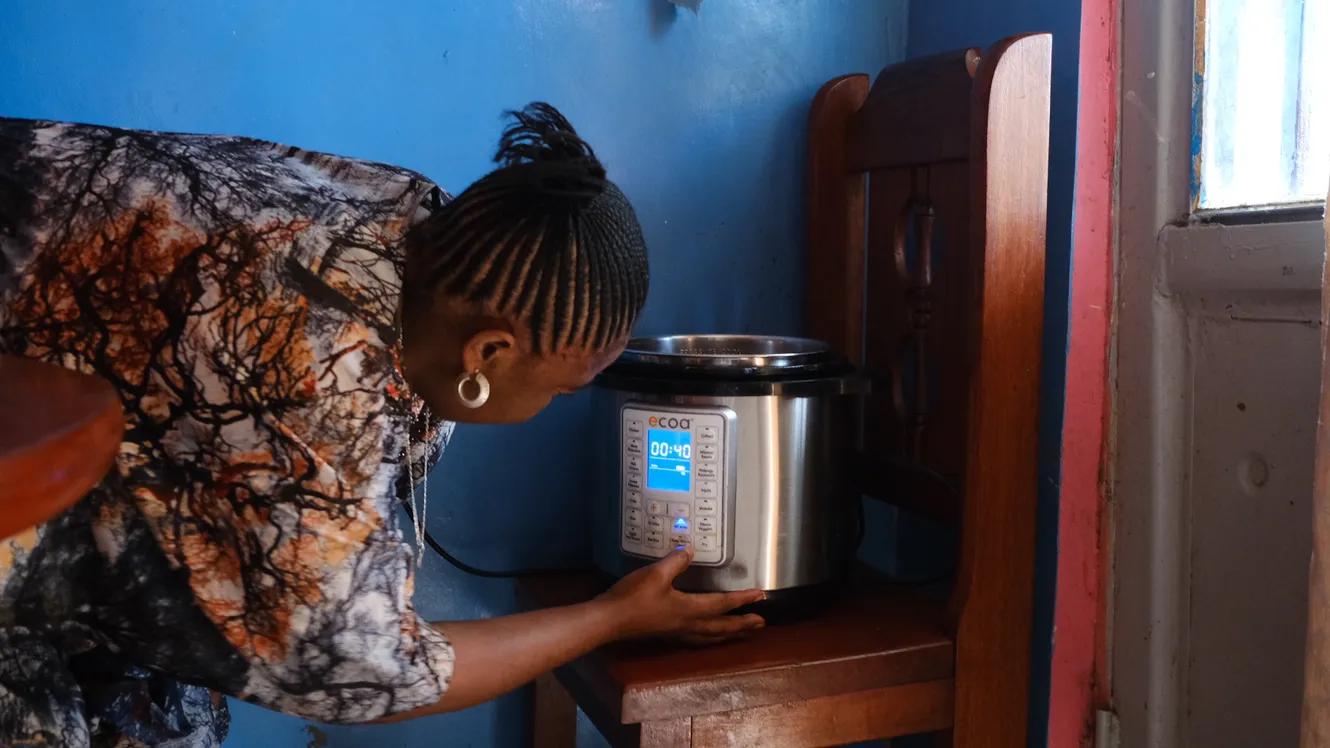
Education
A digital platform to improve high school students’educational decision-making in Dominican Republic
The introduction of electric cooking as an alternative to charcoal could help stop the massive deforestation underway in Africa’s oldest natural park located in the eastern part of the Democratic Republic of Congo. This project, led by the Centre for Environmental Economics in Montpellier (CEE-M), aims to replace the use of biomass with an electric pressure cooker. FID funding of the impact evaluation will be used to understand whether its adoption affects forest protection.
Project deployed by:


In Goma, over 90% of households use charcoal for cooking. Timber plantations are not large enough to meet the exponential demand for fuel. As a result, most of the demand is met by charcoal illegally produced by armed groups in protected forests of the UNESCO World Heritage Virunga National Park, thus fueling conflicts and threatening the natural habitat of endangered species like the mountain gorilla.
As highlighted by Sébastien Desbureaux, researcher for the Center for Environmental Economics – Montpellier (CEE-M), research has shown that the pollution caused by cooking with this type of energy has a major environmental (CO2 emissions and deforestation) and social (health and human well-being) impact, and that cleaner energy alternatives are available that have already proven effective.

The project co-developed by CEE-M, the Virunga Foundation and the University of Antwerp relies on the assumption that the gradual replacement of charcoal by the use of an electric pressure cooker can contribute to curbing deforestation, reducing household energy costs, and contributing to peace in the area.
The project provides an electric pressure cooker, fully subsidised by the hydroelectric power social enterprise, Virunga Energies, which is 100% owned by Virunga National Park. The resulting increase in electricity expenditure by beneficiary households would eventually create a return on investment for the company, while reducing demand for charcoal.
The FID-funded evaluation provided an opportunity to trial different methods to promote the use of pressure cookers, via a grant to finance:


The project partners performed an impact assessment involving 1,600 households in Goma. Virunga Energies provided electric cookers to a sample group representing two thirds of households, distributed during practical training sessions, where beneficiaries were given advice on how to use the cookers and tried them out as a group. Two sub-groups were also given a voucher covering firstly, the cost of electricity for one month, and secondly, awareness-raising activities on environmental and safety issues in the region. Results were obtained by continuously monitoring their electricity charges, weighing charcoal ash, and conducting surveys among the households six and twelve months after the pressure cookers were distributed.
In February 2024, the research team posted the mid-term findings of this test, ahead of a final survey slated for the end of year. The final results are now available.

The majority of the households targeted by the project have adopted electric cooking for the long term. Furthermore, energy costs per household were significantly reduced ($5.76 less per month per household).
The social and environmental benefits of adopting electric cookers are also significant, including:
While it has not yet been possible to measure either the direct impact of electric cooking on health, or the more indirect effects on improving safety in the area, these factors could be assessed at a later stage when scaling-up the project.
The impact assessment thus confirms the existence of a real demand for alternative cooking methods, while highlighting the need for both financial and social support to ensure the sustainability of social and environmental co-benefits.
According to projections by the research team, the project’s business model could be scaled up significantly, with the electricity distributor, Virunga Energies, increasing its customer base from 20-25,000 currently to 50-60,000 by 2029-2030.
Sébastien Desbureaux is a postdoctoral researcher at CEE-M He headed the Virunga Foundation's Monitoring & Evaluation department in 2019-2021.
Marijke Verpoorten is Associate Professor of Economics at the University of Antwerp.
Lara Collart has been a doctoral student at the University of Antwerp since 2022, specializing in evaluation programs.
Projects
Projects funded by FID

Education
A digital platform to improve high school students’educational decision-making in Dominican Republic

Côte d'Ivoire
Health
Using an electric cooking appliance to combat domestic air pollution in Côte d’Ivoire
India
Education
A classroom program in India aimed at improving students’ well-being for better academic outcomes